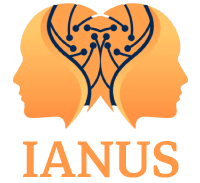Policy recommendations are a central outcome of the IANUS project. Within the project consortium, Fraunhofer ISI is responsible for turning key project insights into policy recommendations explicitly addressed to governance actors of the science system. The process for developing policy recommendations has been developed and published in a public deliverable this year. The used approach for developing policy recommendations addresses the problem already pointed out in academic literature on policy advice that ‘science’ as such is not the only basis for decision-making actors. Instead, it is simply another source of information and aspects considered among many others.
Furthermore, the IANUS project members consider that scientific experts are often pitted against each other by opposing political interest groups, particularly in cases where a sound scientific consensus has not (yet) been reached. As a consequence, ‘science’ itself is often not perceived as ‘true’ or completely unbiased. Moreover, evidence-based recommendations are often criticised for being unidirectional and disseminated to target groups without first involving them adequately in the process, which increases the risk that such policy recommendations are ultimately not suitable and are therefore not, or insufficiently, implemented. Therefore, the comprehensive involvement of key policy-makers and stakeholders in developing recommendations is crucial. For this reason, we envision – in the spirit of the entire IANUS project – an approach to developing policy recommendations that is highly participatory and co-creative.
The methodological approach used to developing policy recommendations in a co-creative manner will rely on policy labs. Policy labs have become a popular instrument for the co-creative development of (policy-related) recommendations. At the same time, the definition of policy labs often remains very vague. In general, policy labs bring together interested parties in order to develop ideas related to policy. Therefore, a policy lab can be seen as an environment that works to develop, test, and implement policies.
The process of developing policy recommendations from the IANUS project consists of several stages, starting with the identification of relevant stakeholders, harvesting key insights from the project, relating key insights with STI governance aspects, the derivation of first recommendations, and the discussion, validation, and concretisation of these recommendations together with STI governance stakeholders. The co-creative process focuses on four stakeholder groups: Research Funding Organisations (RFOs), Research Performing Organisations (RPOs), Higher Education Institutes (HEIs) and Science, Technology and Innovation Policy actors both at the national and European levels. Fraunhofer ISI will set up policy labs for each stakeholder group in the upcoming year. After the stakeholders are identified (by the end of this year), they will be contacted and invited to take part in the IANUS policy labs. They will then be informed about the project and the first project’s results, for example, via initial policy briefs. After the first online meeting for all stakeholders, there will be four virtual focus groups in fall 2024 – one for each group of stakeholders – in which the results that have been produced up to this point will be turned into policy recommendations. The results of these focus groups are then processed into final policy briefs in several feedback loops and will then be disseminated.
